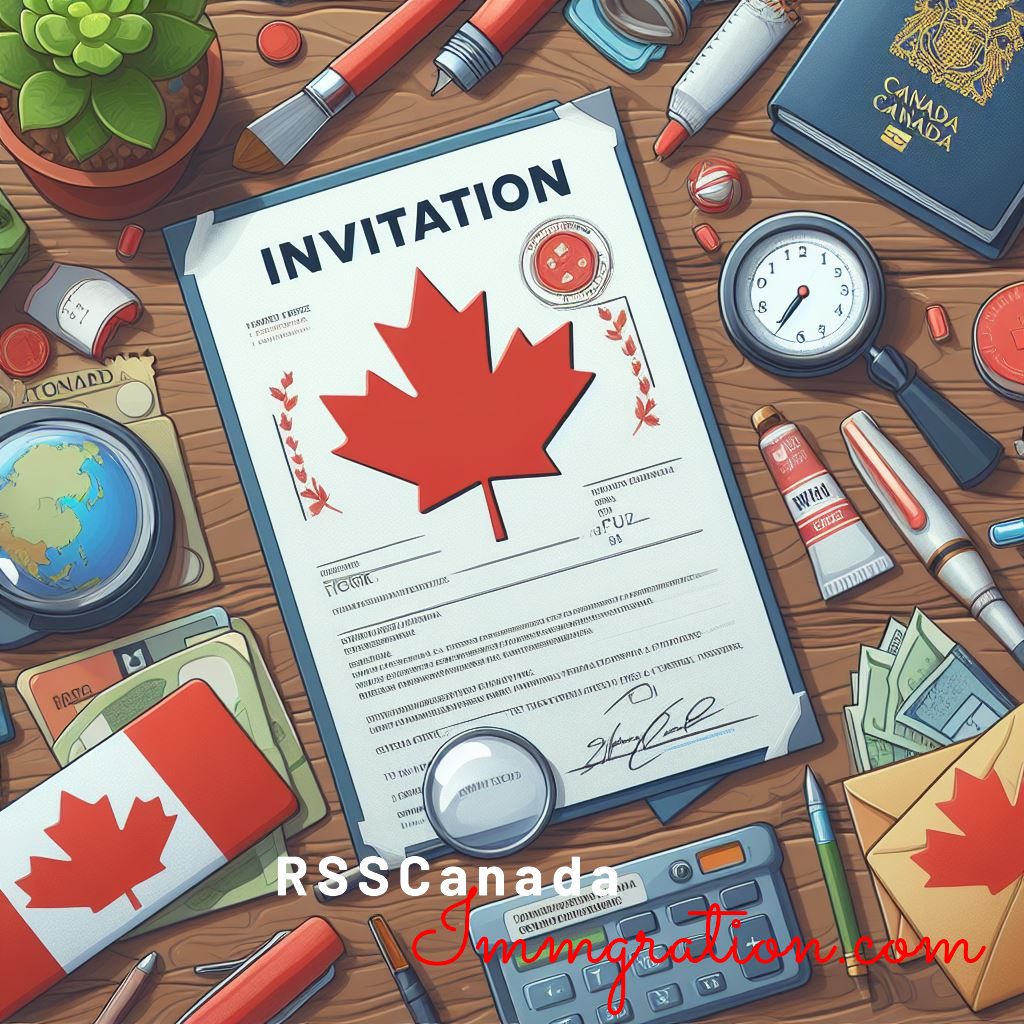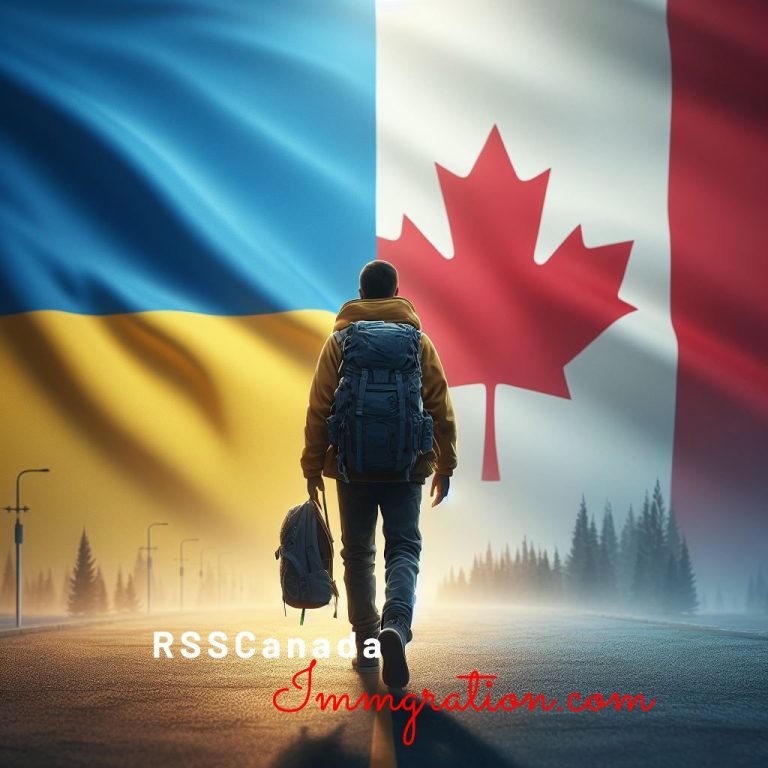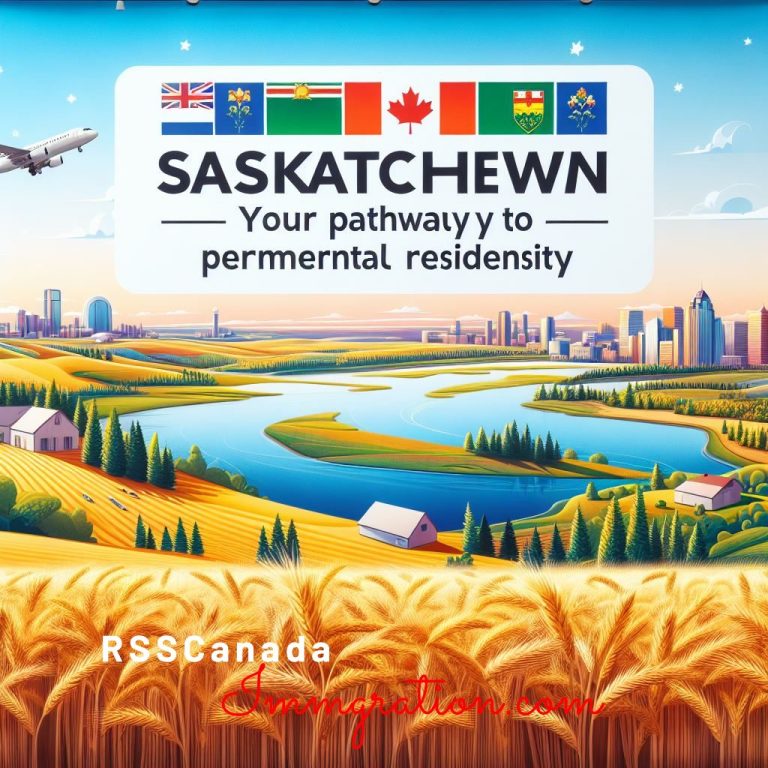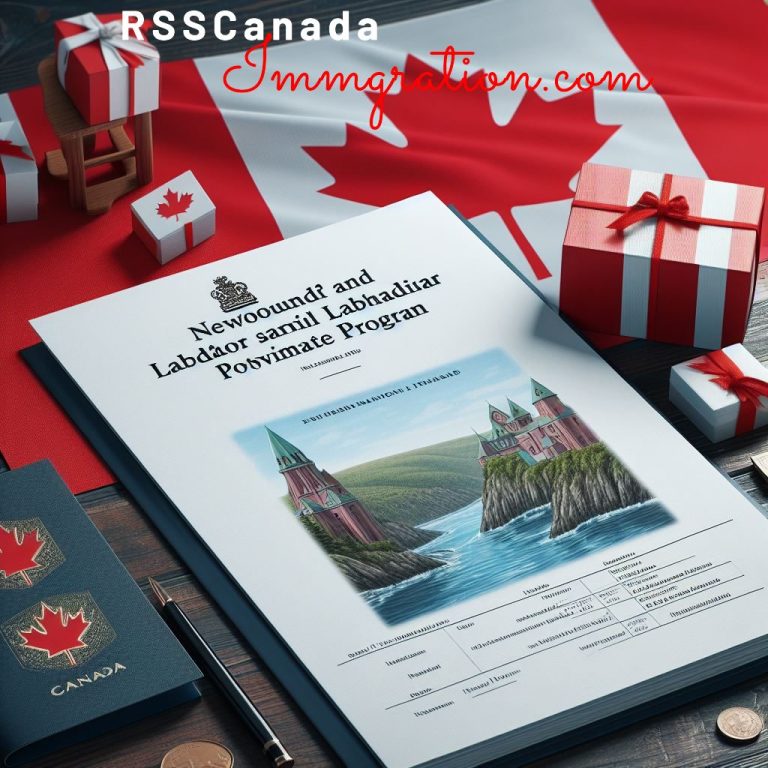Invitation to Apply (ITA) for Permanent Residence in Canada
The Invitation to Apply (ITA) is a document issued by Immigration, Refugees and Citizenship Canada (IRCC) to candidates in the Express Entry pool, allowing them to apply for Canadian permanent residence. Invited candidates may immigrate with their accompanying family members, provided they were included in the initial Express Entry profile. Two main criteria are required to receive an ITA eligibility for a skilled worker immigration program aligned with Express Entry and a competitive Comprehensive Ranking System (CRS) score. The CRS is a points-based system that considers various factors such as age, education, language proficiency, work experience, provincial nomination, and job offers.
Criteria for receiving an ITA
The Express Entry pool only allows individuals who meet the minimum eligibility requirements for a federal economic immigration program to participate. Within the pool, candidates are assessed and ranked using the Comprehensive Ranking System (CRS).
The CRS takes into account various components, such as
- Core Human Capital Factors,
- Accompanying Spouse Or Common-Law Partner Factors (If Applicable)
- Skill Transferability Factors, And Factors Related To A Provincial Nomination
- A Qualifying Offer Of Arranged Employment
- Previous Study In Canada
- Having A Sibling In Canada, Or Proof Of French Ability.
In total, there are 1,200 points available under the CRS. The Canadian government uses the CRS ranking to issue Invitations to Apply to selected candidates in the Express Entry pool.
The government publishes a minimum CRS cut-off score at the time of the draw and notifies those individuals who have been invited to apply for permanent residence.
Steps to Take Upon Receiving an Invitation to Apply (ITA)
Upon receiving an ITA, candidates need to follow certain steps to ensure a smooth application process and increase their chances of obtaining Canadian permanent residence.
Meeting the minimum requirements and gathering necessary documentation
Ready to provide sufficient evidence a mandatory set of documents is required from all candidates who obtain an ITA Official required paperwork for visa application.In case you receive an Invitation To Apply, you must submit a range of supporting documents, including
- valid passports,
- birth certificates,
- language test results,
- proof of work experience,
- police clearance certificates,
- upfront medical receipts,
- photographs of the primary applicant and family members,
- and proof of relationship with family members currently residing in Canada.
Requirements for biometrics, medical examinations, and additional documentation
During the processing period, applicants may be requested to provide biometrics, undergo medical examinations, and submit additional documentation. Biometrics, such as fingerprints and photographs, are collected to verify the identity of the applicant. Medical examinations are required to assess the applicant’s health and determine if there are any medical conditions that may make them inadmissible to Canada. Depending on the specific program through which you were invited and the information provided in your Express Entry profile, you may also need to include additional documents such as
- A Canadian Education Credential Or Educational Credential Assessment (Eca),
- A Letter Of Attestation,
- Transcripts From Post-Secondary Education,
- Secondary Education Documents,
- A Letter From A Canadian Employer Offering Arranged Employment,
- Proof Of Financial Settlement,
- Legal Documents For Name Or Date Of Birth Changes,
- Marriage Certificates, Documentation For Common-Law Unions Or Cohabitation, Divorce Or Annulment Certificates,
- Death Certificates For Former Partners,
- Birth Certificates For Children, Adoption Papers,
- Proof Of Sole Custody For Children,
- Non-Passport Travel Documents,
- A Certificate Of Qualification In A Skilled Trade Occupation Issued By A Canadian Provincial Or Territorial Authority,
- Copies Of Work Contracts Or Payslips,
- And Income Tax Documents.
We are fully prepared to provide appropriate evidence in response to any and all document requests as required for the visa application process.
Consequences of misrepresentation in the application process
Misrepresentation in the application process can have severe consequences. Inaccurate or false information provided in the application can result in a five-year ban from Canada. It is crucial to provide truthful and accurate information regarding personal details, education, work experience, and supporting documentation. Candidates should ensure that all the information provided in the application is correct and supported by appropriate evidence. Hiring a qualified immigration representative or lawyer can help navigate the application process and avoid any potential misrepresentation.
Instances of misrepresentation may consist of:
An applicant enlisting the help of a relative or friend to gather information in support of their application. If the information provided by this representative turns out to be false, the applicant cannot claim ignorance.
It is the responsibility of the applicant to ensure the truthfulness and authenticity of their application and accompanying documents.
As a result, the applicant could be deemed inadmissible due to misrepresentation, even if they are not the ones responsible for fabricating evidence.
An individual claiming to have no criminal record, but during a background check, a criminal record is uncovered. T
his is a clear example of misrepresentation. The range of misrepresentation is not restricted to just these scenarios. When there is a possibility of misrepresentation, the applicant may be given an opportunity to address any concerns brought up about their application.
Options of accepting, declining, or letting the ITA expire
Accepting of an ITA
The initial profile details will be retained for 60 days following the issuing of the Invitation To Apply.
During this time, candidates are expected to submit a thorough and accurate application, along with all necessary supporting documents.
To avoid missing the 60-day deadline, it is advisable for candidates to begin gathering and organizing these documents prior to receiving an Invitation To Apply for permanent residency in Canada.
In the event that the deadline is not met, the previously issued Invitation To Apply will no longer be valid and the candidate will need to re-enter the pool of the Express Entry system.
Upon completing all sections of the document checklist and finalizing all necessary information, applicants will be given the option to officially submit their application. This option will only be available after all fields have been filled out.
The submission of a complete application serves as the official acceptance. Once the file has been submitted, an Acknowledgment of Receipt (AOR) will automatically be issued. IRCC will then proceed to review the application to ensure that it is both complete and eligible.
It is their goal to complete this process within six months of the applicant’s submission date.
Expiration of an ITA
If an Invitation To Apply (ITA) is not used within 60 days, it will expire. Candidates who do not decline the ITA and fail to apply within this time frame will have to restart the process by creating and submitting a new Express Entry profile.
As long as they still meet the minimum eligibility requirements, they will be able to re-enter the pool and be considered for future rounds of invitations.
Declining An ITA
However, declining an ITA will not have any negative impact on their chance of being invited in the future, as long as they continue to meet the criteria for a federal economic immigration program.
It is important to note that receiving an ITA is not guaranteed, and candidates can check previous rounds of invitations to see the number of ITAs issued and the minimum CRS points required for each draw, as well as the program(s) under which they were issued.
Application process, e-APR, processing fee, and Right of Permanent Residence Fee (RPRF)
The application process for permanent residence is known as e-APR (electronic Application for Permanent Residence). Candidates are required to submit their application online, providing details such as personal information, educational history, employment history, language proficiency, and supporting documentation. Along with the application, candidates need to pay a processing fee and the Right of Permanent Residence Fee (RPRF). The processing fee covers the cost of assessing the application, whereas the RPRF is a fee paid by principal applicants to confirm their commitment to become a permanent resident of Canada.
Timelines and stages involved in the processing period
The processing period for a permanent residence application typically ranges from 6 to 12 months.
However, these timelines may vary depending on factors such as the complexity of the application, the number of applications in the queue, and the workload of the processing office. It is important to note that these timelines are approximate and subject to change. The stages involved in the processing period may include document verification, background checks, biometrics collection, medical examinations, and interviews, if required.
Considerations for travel during the processing period and eligibility for the bridging open work permit
Travel during the processing period is usually permitted, but applicants should consider the potential impact it may have on their application and any visa/permit requirements.
It is essential to maintain communication with the IRCC and inform them about any changes in personal circumstances, such as travel plans or updated contact information.
In certain cases, applicants may be eligible to apply for a bridging open work permit, which allows them to continue working in Canada while their permanent residence application is being processed.
Eligibility for the bridging open work permit depends on various factors, including the status of the current work permit and the stage of the permanent residence application.
Seeking Assistance with the Express Entry Application
The Express Entry application process can be complex, and it is advisable to seek assistance from accredited representatives for guidance and support.
Importance of consulting accredited representatives
Accredited representatives, such as immigration consultants or lawyers, have the knowledge and expertise to navigate the application process effectively. They can provide guidance on meeting the eligibility requirements, gathering the necessary documentation, and submitting a complete and accurate application. Working with an accredited representative can help avoid common mistakes, ensure compliance with immigration laws and procedures, and increase the chances of a successful application.
Preparation and submission of the application
Preparing and submitting the application carefully is crucial, as changes cannot be made once it has been submitted. It is essential to review all information, supporting documentation, and declarations before submitting the application. An accredited representative can assist in reviewing the application to ensure accuracy and completeness. It is important to note that providing false or misleading information in the application can result in serious consequences, including inadmissibility and the imposition of a ban on future applications.
Utilizing available resources and tools provided by IRCC
Immigration, Refugees, and Citizenship Canada (IRCC) provide a range of resources and tools to assist candidates with their Express Entry application. These resources include eligibility checkers, step-by-step guides, and information on required documentation. Candidates can visit the IRCC website, access online resources, and utilize tools to understand the application process and requirements better.
However, it is important to note that these resources should be used in conjunction with professional advice from accredited representatives to ensure accurate interpretation and application of the information.
FAQs
How do I respond to an Invitation to Apply for Permanent Residence?
To respond to an Invitation to Apply (ITA) for Permanent Residence, you have three options:
Accept the invitation and proceed with the application process.
Decline the invitation if you no longer wish to apply for permanent residence.
Let the ITA expire by not responding within the 60-day validity period.
What are the next steps after receiving an Invitation to Apply for Permanent Residence?
After receiving an Invitation to Apply (ITA) for Permanent Residence, the next steps include reviewing the ITA, ensuring you meet the minimum requirements, gathering necessary documentation, and making a decision on whether to accept, decline, or let the ITA expire. If you choose to proceed with the application, you will need to complete the application process online, pay the processing fee and Right of Permanent Residence Fee (RPRF), and submit the required documentation.
Can I extend the deadline for responding to an Invitation to Apply for Permanent Residence?
No, the deadline for responding to an Invitation to Apply (ITA) for Permanent Residence cannot be extended. It is important to carefully review the ITA and respond within the 60-day validity period. Failure to respond within the specified timeframe will result in the ITA expiring, and you will not be able to proceed with the application process.
What are the common reasons for receiving an Invitation to Apply for Permanent Residence?
Receiving an Invitation to Apply (ITA) for Permanent Residence is based on two main criteri eligibility for a skilled worker immigration program aligned with Express Entry and a competitive Comprehensive Ranking System (CRS) score. Candidates with a high CRS score and who meet the eligibility requirements are more likely to receive an ITA. Factors that contribute to a high CRS score include age, education level, language proficiency, work experience, provincial nomination, and job offers.
What is an Invitation to Apply (ITA) for Permanent Residence in Canada?
An ITA is an official invitation issued by the Canadian government to individuals who meet the eligibility criteria for a specific immigration program. It allows them to apply for permanent residence in Canada.
How can I receive an ITA for Permanent Residence?
To receive an ITA, you need to create an online profile in the Express Entry system and be selected from the pool of candidates based on factors like age, education, work experience, language skills, and more. Meeting the minimum eligibility requirements of a specific program is crucial to receive an ITA.
Can I decline an Invitation to Apply?
Yes, you have the option to decline an ITA if you are not ready or interested in applying for permanent residence at that time. However, declining an ITA means your opportunity to apply for that particular immigration program will be lost, and you’ll need to wait for another ITA.
How long is an Invitation to Apply valid?
Generally, an ITA is valid for 60 days. During this time, applicants are required to submit a complete application, including supporting documents and fees, for permanent residence. Failing to do so within the specified timeframe will result in the ITA becoming invalid.
Is an Invitation to Apply a guarantee for permanent residence?
No, an ITA does not guarantee permanent residence. It is an opportunity to apply for permanent residence and undergo further assessment by Canadian immigration authorities. Your application will be reviewed based on admissibility requirements, security checks, medical examinations, and other factors.
Can I apply for different immigration programs with the same Invitation to Apply?
No, an ITA is program-specific. It can only be used to apply for the immigration program for which you received the invitation. If you wish to apply for a different program, you’ll need to receive a separate ITA based on the eligibility criteria of that program.
Can I submit an Invitation to Apply without having all the required documents?
It is important to submit a complete application with all the required documents within the specified timeframe. However, if you are missing certain documents, you may be given the opportunity to provide proof of attempts made to obtain them or request an extension. It is advisable to consult with an immigration professional in such cases.
What happens after I submit my application following an Invitation to Apply?
After submitting your application, it will be reviewed by Canadian immigration authorities. They will examine your application for completeness, conduct background checks, verify your documents, and make a decision on your eligibility for permanent residence. The process may take several months.
If I receive an Invitation to Apply, can I include my family members in the application?
Depending on the immigration program, you may be able to include your spouse or common-law partner, as well as dependent children, in your application. Ensure you carefully review the eligibility criteria of the specific program to determine who can be included as accompanying family members.
What happens if my Invitation to Apply is refused?
If your ITA is refused, you will not be able to proceed with your application for permanent residence under that specific program. However, there may be other immigration programs available, and you can explore alternative options based on your eligibility and circumstances.



